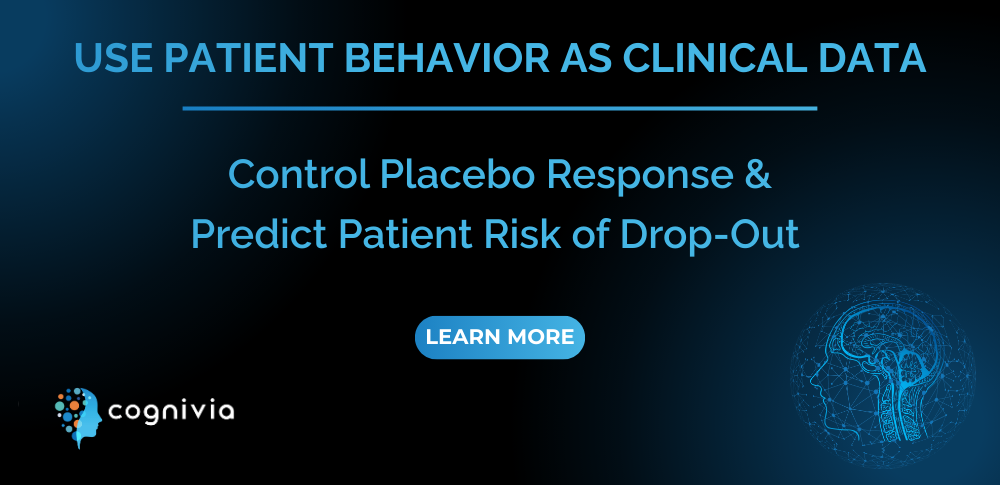The global obesity epidemic has shifted from a public health issue to a fiercely competitive pharmaceutical frontier. With GLP-1 drugs like semaglutide and tirzepatide revolutionizing treatment and generating unprecedented commercial interest, analysts project the obesity drug market will surpass $200 billion in annual value by 2031. Novo Nordisk and Eli Lilly are leading this surge, with their GLP-1 therapies alone expected to generate more than $470 billion in cumulative obesity drug revenue by 2030.
But behind the fanfare lies a quieter crisis: the behavioral complexity of trial participants. Unlike traditional endpoints such as blood pressure or cholesterol, obesity outcomes are deeply intertwined with behavior, diet, motivation, perception, and psychology. This variability muddles results, dilutes efficacy signals, and places immense pressure on sponsors to account for human behavior in the data. As regulators raise the bar on evidence standards and trials scale across diverse populations, one truth becomes increasingly clear: understanding and accounting for behavioral factors is a clinical and competitive necessity in the race for acquiring obesity marketshare.
Trait-Driven Non-Response: When the Drug Isn’t the Problem
The problem with obesity clinical trials involves behavioral traits that influence weight management. To elaborate, behavior science suggests that self-monitoring, goal setting, and self-efficacy significantly influence adherence to weight-loss interventions. For instance, a study by the CSIRO revealed that individuals who regularly tracked their weight, dietary intake, and exercise were more successful in achieving and maintaining weight loss. Participants who utilized all available tracking tools lost an average of 10.6 kg, with the most successful losing up to 22.3 kg over a year. Similarly, another study found that consistent dietary self-monitoring—logging food intake five to six days per week—was associated with greater weight loss and maintenance. Furthermore, another study highlighted that setting specific weight-loss goals led to greater weight reduction compared to not setting any goals. These findings illustrate that behavioral traits are core determinants of weight-loss success.

In obesity trials, behavioral traits are not just ancillary—they fundamentally shape outcomes. If a patient isn’t motivated or struggles with self-regulation, even the best drug may appear to underperform. Behavioral profiling gives sponsors a lens to separate true pharmacologic response from human variability.
In the context of clinical trials, these traits can dramatically affect outcomes. Two patients given the same intervention might experience vastly different results—one succeeding due to consistent behavioral engagement, and the other failing because of impulsivity or low self-efficacy. If not identified and accounted for, these psychological differences introduce noise into the data, obscure treatment effects, and reduce trial power.
For example, a patient who impulsively eats high-calorie foods despite being on a weight-loss drug may see minimal change, not because the drug doesn’t work, but because their behavior counters it. This behavioral non-response or over-response in clinical trials can dilute treatment effects, inflate variance, and lead to false negatives or false positives.
Cognivia’s behavioral modeling quantifies these traits before dosing ever begins, enabling trial designers to stratify arms, tailor statistical models, and better interpret variability. In doing so, it transforms unpredictable human behavior into measurable data, ultimately strengthening the integrity and interpretability of trial results.
Trial Noise, Placebo Responders, and the Nocebo Twist
A 2022 meta-analysis published in eClinicalMedicine found that in placebo arms of obesity trials, 20.4% of patients achieved ≥5% weight loss, and 8.3% lost ≥10% of body weight. These are clinically meaningful results from no active drug, and they underscore the challenge placebo effects pose for interpreting efficacy signals. If nearly one in five participants in a placebo arm loses significant weight, the drug arm must demonstrate even greater efficacy to prove it wasn’t just expectation or behavioral change driving outcomes. Conversely, 74% of placebo patients reported adverse events, and 5% dropped out due to side effects they only expected, not experienced pharmacologically, highlighting the need to distinguish pharmacologic side effects from psychologically driven ones.
These phenomena increase the risk of Type I and Type II errors, potentially resulting in the wrongful rejection or acceptance of a drug. For example, a nocebo-prone patient may report nausea, fatigue, or dizziness even when taking placebo, artificially inflating adverse event rates. Conversely, a highly suggestible placebo responder may report increased satiety, better mood, or greater motivation due to trial participation alone. This could lead to behavioral changes, like improved diet or exercise, resulting in measurable weight loss. This can falsely elevate the perceived efficacy of a control group, especially in trials where lifestyle support is provided equally across arms. These effects complicate statistical analyses and can distort trial outcomes.
Cognivia’s Placebell® platform helps identify likely placebo and nocebo responders pre-randomization using psychological profiling, allowing sponsors to stratify randomization, interpret data more clearly, and reduce trial noise, leading to cleaner, more actionable results.
Dropouts and Diets: Predicting Non-Adherence Before It Happens
Obesity trials often face high attrition rates, which can compromise the validity of their outcomes. For instance, a study published in Frontiers in Nutrition reported a 12-month dropout rate of approximately 68.5% among participants in a multidisciplinary residential program for obesity treatment. Notably, early weight loss was identified as a significant predictor of continued engagement, with participants experiencing less initial weight loss and being more likely to discontinue the program.
Such high dropout rates in clinical trials can lead to biased results, reduced statistical power, and increased costs. Early disengagement may skew efficacy and safety analyses, especially among participants not experiencing immediate benefits. Tools like Cognivia’s Compl-AI™ can identify individuals at higher dropout risk by analyzing early response patterns and psychological profiles to mitigate these risks. This proactive approach enables targeted interventions to improve retention and maintain trial data integrity.
Redefining Trial Success: When You Know the ‘Why’ Behind the Data
In modern obesity trials, understanding why a patient responds—or doesn’t—is as important as measuring how much they respond. Behavioral variability isn’t just background noise; it’s often the difference between a trial that proves a drug’s efficacy and one that fails to show significance. Knowing whether an outlier result was driven by motivation, non-adherence, or placebo effect helps sponsors interpret outcomes with greater confidence. That’s why it’s critical to model behavioral traits before dosing begins; trial teams can detect underlying patterns that distort efficacy or safety signals, then adjust their design and analysis strategies accordingly.
For instance, in an osteoarthritis study, integrating Cognivia’s Placebell reduced data variability by 30%—a reduction that significantly enhanced statistical power without requiring additional enrollment. In that study, researchers used psychological assessments to identify placebo responders in advance and included those scores as covariates in the final statistical analysis. The result: outcome variance was significantly reduced, and the treatment effect was more clearly detected. This approach enabled a more precise separation of drug signal from placebo noise, providing sponsors with stronger evidence to support therapeutic claims.

Behavioral variability is the hidden variable that keeps clinical trials noisy, but once you quantify it, you unlock the power to clarify, interpret, and act with far more precision.
Precision Trials Win Markets
It’s no longer the 1990s or 2000s—obesity trials today demand more than simply administering investigational products and recording outcomes. They now unfold within dynamic human systems, where mindset, habits, and engagement can sway trial outcomes as much as the molecule being tested. Every day a therapy is delayed in this blockbuster market represents a substantial loss in commercial opportunity, elevating the need for clinical rigor.
In this context, behavioral variability is no longer a peripheral concern—it’s a central determinant of trial success. Motivation, impulsivity, expectation bias, and adherence can sway results, skewing efficacy signals, inflating safety concerns, and requiring costly over-enrollment to compensate for variance. Biopharmaceutical enterprises that use advanced tools in their clinical trials will be the ones that surface sooner and earn more of the obesity market share.
By modeling psychological traits before dosing, Cognivia helps sponsors uncover hidden variability that would otherwise distort results. This allows for more innovative trial designs, tighter randomization, and clearer outcomes.
Obesity trials won’t be won by throwing more patients at the problem. They’ll be won by precision, by understanding and accounting for the human variables at play. Sponsors who adopt this approach will define what it means to be successful in obesity research and outcomes.
This article is sponsored by Cognivia.
Moe Alsumidaie is Chief Editor of The Clinical Trial Vanguard. Moe holds decades of experience in the clinical trials industry. Moe also serves as Head of Research at CliniBiz and Chief Data Scientist at Annex Clinical Corporation.








